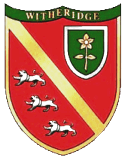

|
By clicking on the subject of your choice in the sub index below, you will be taken directly to your selected page, which will open in the same window. To view further pages within this section, you can either use the next button at the foot of the page, which will move you through the section one page at a time. You can also return to this index page by using the Previous button, again at the foot of the page, or you can use also make use of your back button. You can of course also open all links from the index page in a separate window using the right click facility on your mouse and selecting "Open Page in New Window". There is also a fifth option of using the Site Index button at the foot of the page to navigate from the main index page. Five methods a all designed to make navigating this site as easy as possible. Life on the cold, wet, high moors of 14th Century North Devon would not have been easy, far from it. Devon in general was, for the most part, thinly populated, and, in the moorland fringes of Exmoor, it is doubtful whether the population density ever exceeded 6-7 people per thousand acres. Life would have been hard, lacking as it did, most of the meagre contemporary comforts. Moreover, Devon had been colonized later than much of the country and at the beginning of the 14th century it was agriculturally one of the most backward counties of England. An analysis of the geographical distribution of wealth in England has shown that at any time up to 500 years after Domesday, Devon was ranked one of the poorest counties, measured by the wealth produced per acre. Risdon, writing in the 17th century, could still comment: "in the north and west the land is lean and barren, so churlish and unthankful to the husbandman's labour, that it hardly affords rye or oats, for moors and hills are untractable for tillage, the roads in the hilly lands very laborious and fatiguing, rough and unpleasant to strangers unaccustomed to travel in such ways; being cumbersome and uneven, in some parts deep and miry, in others rocky and stony, painful for man and horse" In England, this period was dominated by the long period of conflict, now known as the Hundred Years' War, and the profound social and economic changes brought about by the Black Death (bubonic plague). The popular and successful Edward III reigned for fifty years, presiding over a mixed period of success for England in France. Parliament continued to develop and English rather than French became the language of daily use. A military recovery under Henry V appeared to have handed him the French victory; instead, after his death, England quickly declined into a period of bloody civil war known as the Wars of the Roses. Scotland saw the establishment of a new dynasty - the Stewarts - that would eventually capture the English throne. Scotland too suffered from plague and civil confrontations but, through it all, the crown came out as the victor. Although Henry IV deposed an autocratic king, he was no reformer; he and his successors repeatedly asserted the power and independence of the monarchy. Meanwhile, however, the institutions of government were evolving. Parliament had begun life as an irregular gathering of noblemen, summoned by the King to extract pledges and impose taxes. By the 15th century, Parliament was divided into 'lords' - increasingly asserting a hereditary right to attend - and 'commons'. Both 'houses' could debate the King's requests, submit petitions and amend legislation. The 'commons' included both 'knights of the shires' and 'burgesses' representing the more urban 'boroughs'. Burgesses were elected; voting figures for a contested election are recorded from 1460. The franchise was drastically restricted in 1429 by the imposition of a property qualification, indicating the increased significance of borough elections. Parliaments met only occasionally; day-to-day government was managed by the King and his Council. While early Councils were dominated by powerful noblemen, Kings from Edward IV on used their prerogative of staffing their Council with their own nominees - commoners included. This period saw the earliest forerunners of today's elected MPs and career civil servants The Late Medieval period (1348 to 1484) Monarchs during this period Edward III (1327-77)Richard II (1377-99) Plantagenet (Lancastrian Line) Henry IV, Bolingbroke (1399-1413)Henry V (1413-22) Henry VI (1422-61) Plantagenet (Yorkist Line) Edward IV (1461-83)Edward V (1483) Richard III, Crookback (1483-85) Previous Last Edited 03/07/2006 Copyright © 2000-2006 Witheridge Unless otherwise indicated on the page in question, the photographic images reproduced on this site belong to the Witheridge Archives, and, as such may not be reproduced for commercial purposes without written permission. However, you are welcome to use any of the photographs belonging to the archive for personal and/or non-commercial use. Any material shown as not being owned by the archive may not be reproduced in any form without first receiving written permission from the owner of the material in question. |

